Archaeology
-
 Earth
EarthHere are some big-if-true scientific claims that made headlines in 2023
Hominid cannibalism, “dark stars,” the secrets of Earth’s core and more tantalizing findings will require more evidence before scientists can confirm them as fact.
-
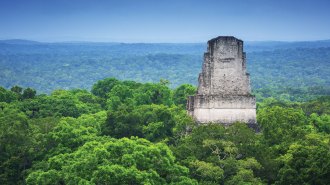 Archaeology
ArchaeologyAncient Maya power brokers lived in neighborhoods, not just palaces
Lidar discoveries and recent excavations are forcing archaeologists to rethink ancient Maya political structures.
By Bruce Bower -
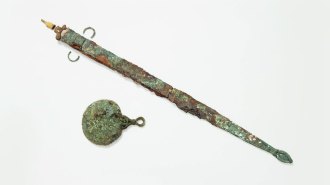 Archaeology
ArchaeologyA mysterious ancient grave with a sword and mirror belonged to a woman
The items hint that she fought in or helped plan raids and defensive actions in what’s now southwestern England about 2,000 years ago, scientists speculate.
By Bruce Bower -
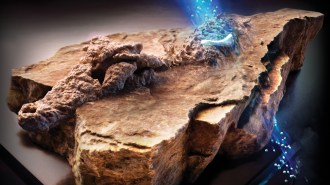 Physics
PhysicsHow neutron imaging uncovers hidden secrets of fossils and artifacts
The technique can complement X-ray scanning and other tools to uncover details of dinosaur fossils, mummies and more.
-
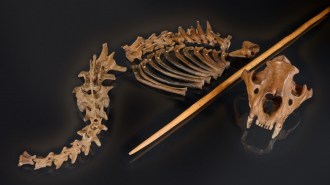 Archaeology
ArchaeologyNeandertals hunted cave lions at least 48,000 years ago
A new study reports the first direct evidence of Neandertals slaying the big cats, and the earliest evidence of any hominids killing a large predator.
By Bruce Bower -
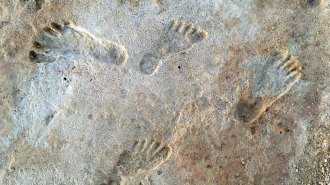 Archaeology
ArchaeologyHuman footprints in New Mexico really may be surprisingly ancient, new dating shows
Two dating methods find that human tracks in White Sands National Park in New Mexico are roughly 22,000 years old, aligning with a previous estimate.
-
 Archaeology
ArchaeologyAncient Egyptian jars hint at complex mummification balms
Residue from ancient jars holding the internal organs of the mummy Senetnay hints at early Egyptian trade routes and complex mummification practices.
-
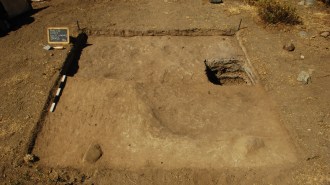 Archaeology
ArchaeologyPre-Inca people stomped salutes to their thunder god on a special dance floor
Excavation of a drumlike platform in the Andes turned up a structure seemingly designed to absorb shocks and emit resonant sounds when stomped upon.
By Bruce Bower -
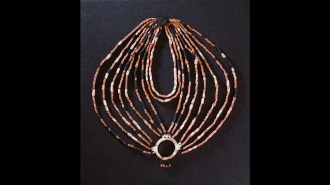 Archaeology
ArchaeologyA child’s ornate necklace highlights ancient farmers’ social complexity
The intricate necklace, reconstructed by researchers, was found on the remains of a child buried about 9,000 years ago in a Middle Eastern village.
By Bruce Bower -
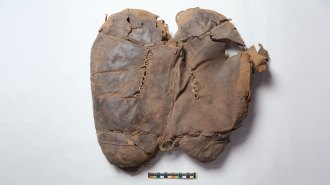 Archaeology
ArchaeologyThe oldest known horseback riding saddle was found in a grave in China
The well-used saddle, dated to more than 2,400 years ago, displays skilled leather- and needlework. Its placement suggests its owner was on a final ride.
By Bruce Bower -
 Archaeology
ArchaeologyHow an ancient solar flare illuminated the start of the Viking Age
Improved radiocarbon dating aided by a solar flare in the year 775 sheds light on the early days of Vikings and global trading in medieval times.
-
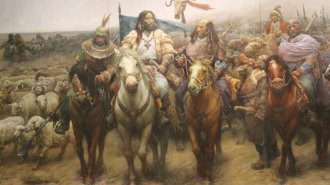 Archaeology
ArchaeologyHow Asia’s first nomadic empire broke the rules of imperial expansion
New studies reveal clues to how mobile rulers assembled a multiethnic empire of herders known as the Xiongnu more than 2,000 years ago.
By Bruce Bower